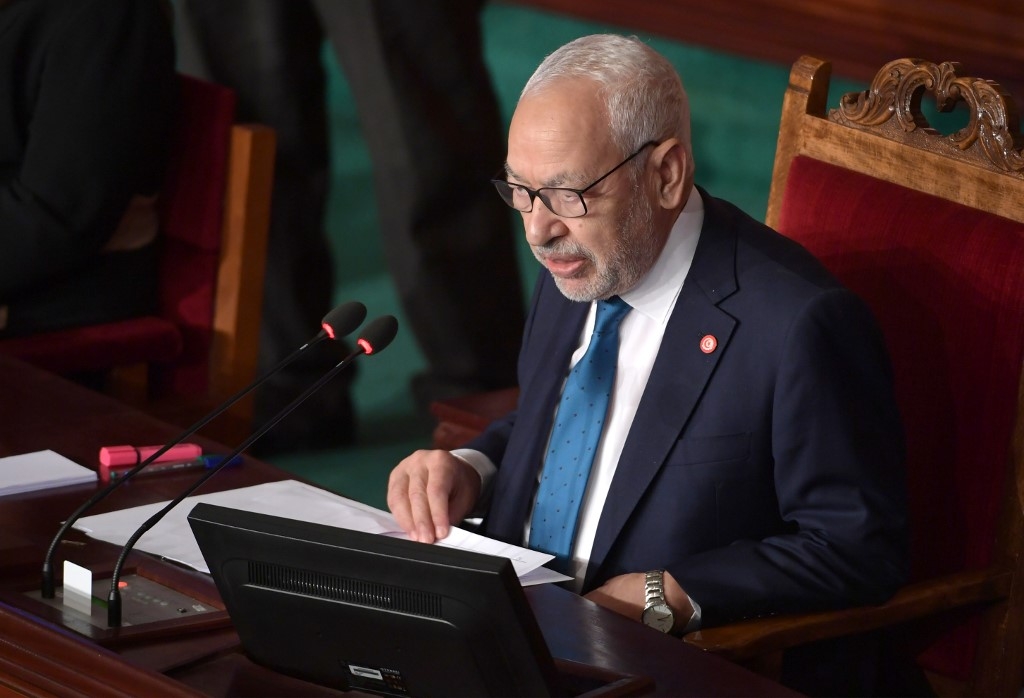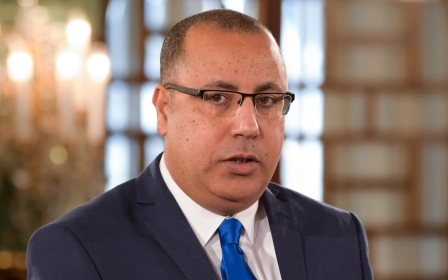Tunisia: Parliament speaker Ghannouchi survives confidence vote

Tunisian parliament speaker Rached Ghannouchi narrowly survived a vote of no confidence on Thursday in one of the biggest challenges yet to his party Ennahda, the largest in parliament.
The no-confidence motion has been launched by a number of opposition parties that accused the parliamentary speaker and co-founder of the Muslim-democratic Ennahda party of pursuing partisan interests.
These blocs included the Tahya Tounes, Attayar, Chaab and Reform parties which are part of the governing coalition with Ennahda.
The Free Constitutional party led by Abir Moussi - a supporter of deposed President Zine El Abidine Ben Ali - has been campaigning to oust Ghannouchi for weeks.
Moussi's party has accused Ghannouchi of serving the agenda of the Muslim Brotherhood and foreign powers including Turkey and Qatar.
Ghannouchi has rejected these accusations, arguing that Tunisians want a government focused on economic and social policy, not political infighting.
Some 97 out of 217 members of parliament voted against Ghannouchi on Thursday, falling short of the 109 needed to oust him. Only 16 MPs voted in favour of the speaker, with Ennahda and the conservative Karama party boycotting the vote to show their opposition to the motion.
With today's vote, Ghannouchi is set to continue as parliament speaker until the end of his term in 2024.
Political turmoil
The vote comes days after the appointment of a new prime minister, Hichem Mechichi, who is tasked with forming a new government.
His predecessor Elyes Fakhfakh resigned earlier this month after a group of 105 lawmakers filed a no-confidence motion in his leadership over corruption accusations. Ennahda has backed his resignation.
The political turmoil comes as Tunisia is struggling to revive its collapsed economy since its 2011 revolution that ended the rule of Ben Ali and sparked the Arab Spring.
The government has recently said that it asked four countries to delay debt repayments, as it announced more pessimistic economic and budget forecasts for 2020 because of the coronavirus pandemic.
The request on debt repayments underscores the dire condition of Tunisia's public finances, already a source of concern before the coronavirus crisis pummelled the global economy.
Middle East Eye delivers independent and unrivalled coverage and analysis of the Middle East, North Africa and beyond. To learn more about republishing this content and the associated fees, please fill out this form. More about MEE can be found here.





